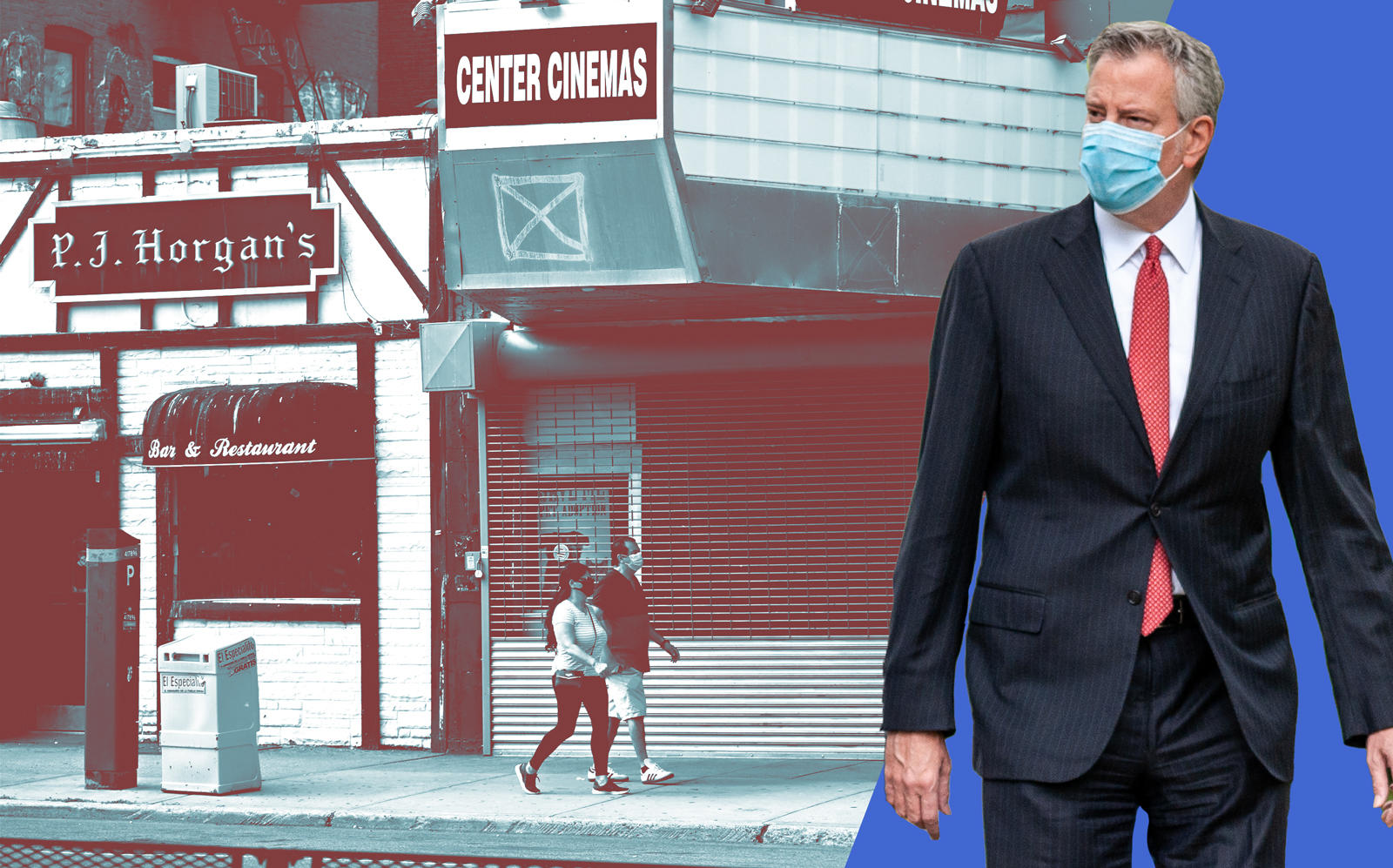Mayor Bill de Blasio on Tuesday signed into law a package of Covid-19 relief bills, including one that temporarily bars landlords from going after restaurant and store owners’ personal assets.
The law suspends the enforcement of personal liability provisions in commercial leases or rental agreements for a default that occurs between March 7 and Sept. 30. Attempting to enforce such provisions constitutes harassment under the measure.
“With the signing of my bill, any small business owner with a personal liability clause in their lease will see that provision temporarily suspended, and they will no longer have to fear their landlord going after their personal life savings and assets because of a disaster no one saw coming,” Council member Carlina Rivera, the bill’s sponsor, said in a statement.
Opponents and some council members had raised legal concerns about the bill, saying the city was overstepping its authority by interfering with private contracts. Attorneys also pointed to the fact that personal liability provisions are often part of separate guaranties signed by the tenant, not baked into lease agreements as the council bill implies.
In addition to the personal liability measure, the mayor signed a bill that expands the definition of residential and commercial tenant harassment to include threats based on the tenant’s status as a Covid-19 affected person, essential employee or recipient of a rental concession or forbearance.
Another bill signed Tuesday prevents third-party food delivery services, like Seamless or Uber Eats, from charging restaurants a fee greater than 15 percent per order for delivery and 5 percent per order for any other charge.
The restaurant industry had pushed for the measure, saying the delivery apps were eating into their profits — but were so popular that quitting them might cause an eatery’s takeout business to evaporate and cost them customers who might later dine in.
“A big problem here is that Grubhub and Seamless control 60 percent to 70 percent of the market,” said Andrew Rigie, executive director of the NYC Hospitality Alliance, via email. “They use that market share to increase fees.”
Write to Kathryn Brenzel at kathryn@therealdeal.com
